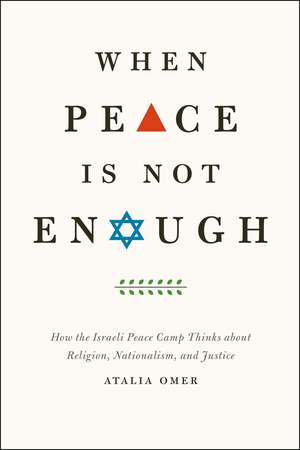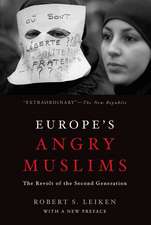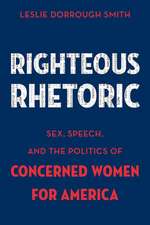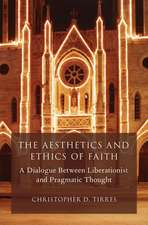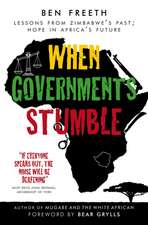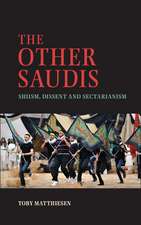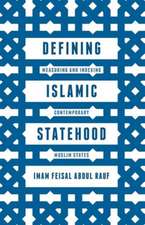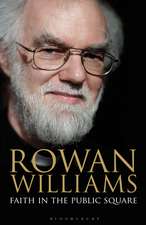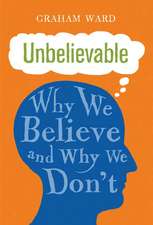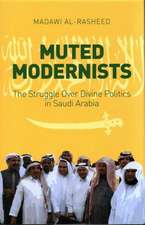When Peace Is Not Enough: How the Israeli Peace Camp Thinks about Religion, Nationalism, and Justice
Autor Atalia Omeren Limba Engleză Paperback – iul 2013
The state of Israel is often spoken of as a haven for the Jewish people, a place rooted in the story of a nation dispersed, wandering the earth in search of their homeland. Born in adversity but purportedly nurtured by liberal ideals, Israel has never known peace, experiencing instead a state of constant war that has divided its population along the stark and seemingly unbreachable lines of dissent around the relationship between unrestricted citizenship and Jewish identity.
By focusing on the perceptions and histories of Israel’s most marginalized stakeholders—Palestinian Israelis, Arab Jews, and non-Israeli Jews—Atalia Omer cuts to the heart of the Israeli-Arab conflict, demonstrating how these voices provide urgently needed resources for conflict analysis and peacebuilding. Navigating a complex set of arguments about ethnicity, boundaries, and peace, and offering a different approach to the renegotiation and reimagination of national identity and citizenship, Omer pushes the conversation beyond the bounds of the single narrative and toward a new and dynamic concept of justice—one that offers the prospect of building a lasting peace.
Preț: 239.24 lei
Nou
Puncte Express: 359
Preț estimativ în valută:
45.78€ • 47.30$ • 38.10£
45.78€ • 47.30$ • 38.10£
Carte tipărită la comandă
Livrare economică 25 martie-08 aprilie
Preluare comenzi: 021 569.72.76
Specificații
ISBN-13: 9780226008103
ISBN-10: 022600810X
Pagini: 384
Dimensiuni: 152 x 229 x 23 mm
Greutate: 0.52 kg
Editura: University of Chicago Press
Colecția University of Chicago Press
ISBN-10: 022600810X
Pagini: 384
Dimensiuni: 152 x 229 x 23 mm
Greutate: 0.52 kg
Editura: University of Chicago Press
Colecția University of Chicago Press
Notă biografică
Atalia Omer is assistant professor of religion, conflict, and peace studies at the Kroc Institute for International Peace Studies and the Department of Sociology at the University of Notre Dame. She is also a faculty fellow at the Notre Dame Center of Religion and Society.
Cuprins
Introduction
ONE / Peace, Justice, and the Zionist Consensus: Peace Now and the Blind Spots of Peacemaking
TWO / Bridging Disciplines and Reimagining “Who We Are”
THREE / Critical Caretakers: The Hermeneutics of Citizenship and the Question of Justice
FOUR / Returning to Sinai: The Religious Zionist Peace Movement
FIVE / Rabbis for Human Rights and Reclaiming Alterity
SIX / Subaltern Visions of Peace I: The Case of the Arab Palestinian Citizens of Israel
SEVEN / Subaltern Visions of Peace II: The Case of the Mizrahim
CONCLUSION / The Hermeneutics of Citizenship: The Missing Dimension of Peacebuilding
Notes
Index
Recenzii
“When Peace Is Not Enough is a groundbreaking contribution to the literatures on comparative nationalisms and political theory, as well as to religion, culture and peace building. Drawing on Hebrew, English, German and Arabic sources, as well as insights culled from cultural anthropology, critical theory, political sociology and religious studies, Atalia Omer brings a new level of interdisciplinary prowess, theoretical sophistication, and explanatory power to the study of religion, nationalism and politics.”
“Using a ‘hermeneutics of citizenship’ to uncover the implication of liberal and secularist notions of religion in illiberal, racist, and exclusivist understandings of national identity, Atalia Omer shows how men and women of hybrid identities may make distinctive and necessary contributions to peacemaking. Ranging widely over political theory, cultural studies, history, and religious studies—and with an impressive command of comparative politics across the globe—When Peace Is Not Enough is a stunning and accomplished work and an intellectually and politically courageous one.”
“Timely and inspirational, When Peace Is Not Enough challenges the conventional wisdom on the Israeli-Palestinian conflict—and on the so-called peace process. Atalia Omer’s fresh and original perspectives about the relationship between liberalism, peace, and war deserve to be read by everyone interested in the theoretical richness of the concept of liberal-nationalism.”
"It is not every day that the emotionally charged topic of contemporary Israel/Palestine is addressed with such complexity, creativity and intellectual refinement."
